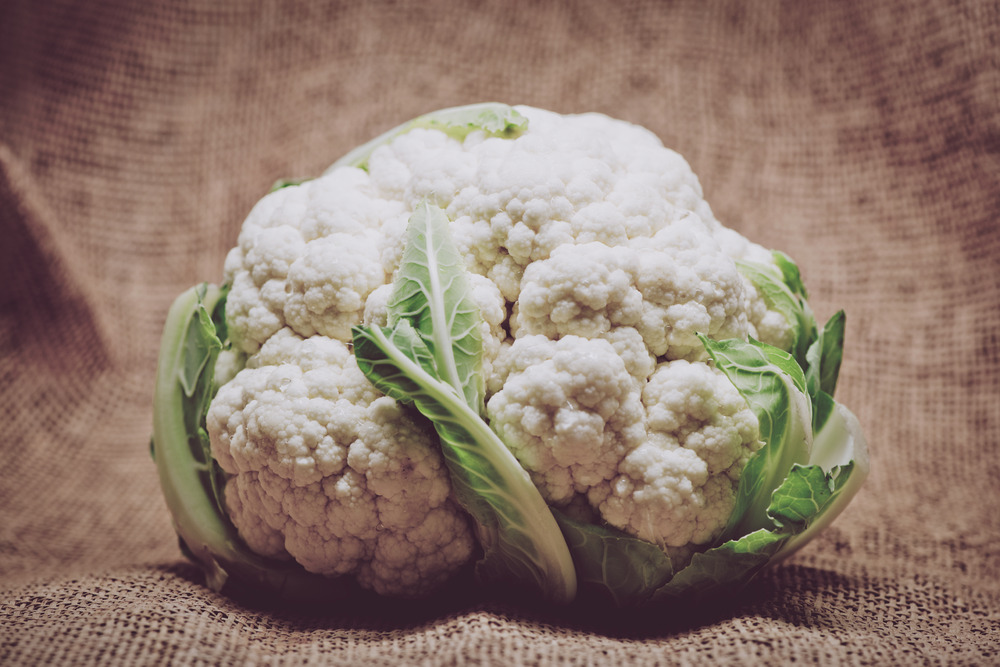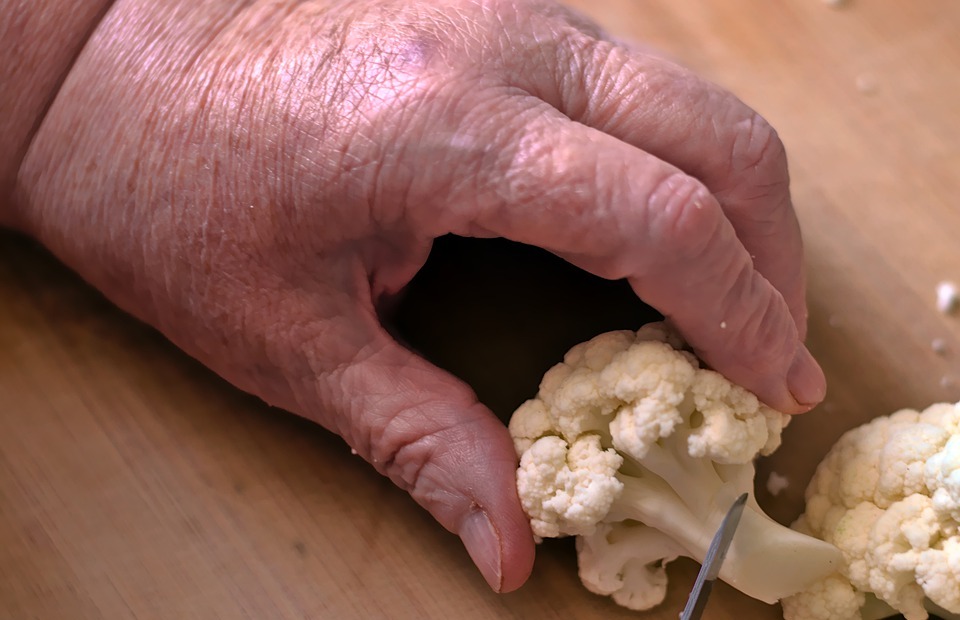This article aims to provide a comprehensive guide to the safe and healthy inclusion of cauliflower in your rabbit's diet. We'll explore the nutritional benefits, potential risks, and proper preparation methods for this versatile vegetable. We'll also delve into suitable alternative vegetables, discuss feeding guidelines, and address common questions and concerns.
Part 1: The Nutritional Value of Cauliflower

Cauliflower, a member of the cruciferous vegetable family, offers a variety of nutrients that can benefit rabbits.
1.1 Vitamin C Boost
Cauliflower is a good source of vitamin C, an essential nutrient that supports a strong immune system and promotes tissue repair in rabbits. This vitamin helps them fight off infections and maintain overall health.
1.2 Vitamin K for Blood Clotting and Bone Health
Cauliflower provides vitamin K, a crucial nutrient for blood clotting and bone health in rabbits. Adequate vitamin K intake ensures proper blood coagulation and supports strong, healthy bones.
1.3 Fibre for Digestive Harmony
Cauliflower is rich in dietary fibre, which aids in healthy digestion and helps prevent digestive problems in rabbits. Fibre promotes a balanced gut microbiome, essential for overall health and well-being.
Part 2: Potential Risks of Feeding Cauliflower to Rabbits

While cauliflower can be a healthy addition to a rabbit's diet, it's crucial to be aware of potential risks.
2.1 Gas and Bloating: A Common Concern
Cauliflower contains raffinose, a type of sugar that rabbits struggle to digest efficiently. This can lead to gas, bloating, and digestive discomfort.
2.2 Diarrhoea: A Sign of Digestive Distress
Cauliflower can cause diarrhoea in rabbits, especially if consumed in excessive amounts or if not prepared properly. This can lead to dehydration and other health issues.
2.3 Calcium Content: A Moderation is Key
Cauliflower contains a moderate amount of calcium. While calcium is vital for rabbits, excessive intake can lead to urinary tract problems. It's important to monitor your rabbit's overall calcium intake from all sources.
Part 3: Preparing Cauliflower for Rabbit Consumption
Proper preparation is crucial to ensure cauliflower is safe and palatable for your rabbit.
3.1 Washing and Cleaning: A Thorough Approach
Thoroughly wash the cauliflower under running water to remove any dirt, pesticides, or residues. Remove any outer leaves that might be damaged or contaminated.
3.2 Chopping and Slicing: Bite-Sized for Easy Digestion
Chop the cauliflower into small, bite-sized pieces to make it easier for your rabbit to chew and digest. Avoid giving them large chunks that could pose a choking hazard.
3.3 Steaming or Boiling: Enhancing Digestibility
Steaming or boiling the cauliflower for a few minutes can soften it and make it more digestible. However, avoid overcooking, as this can destroy nutrients and make it less appealing.
Part 4: Exploring Alternative Vegetables for Rabbits
To provide a diverse and balanced diet, consider offering your rabbit a variety of safe and nutritious vegetables.
4.1 Leafy Greens: A Rich Source of Nutrients
Rabbits can enjoy a wide variety of leafy greens, such as romaine lettuce, kale, and spinach, which are rich in vitamins, minerals, and fibre. These greens contribute significantly to their overall health and well-being.
4.2 Root Vegetables: A Source of Variety
Carrots, parsnips, and sweet potatoes are safe and nutritious root vegetables for rabbits. However, due to their higher sugar content, they should be offered in moderation.
4.3 Herbs: A Flavorful Addition to the Diet
Parsley, cilantro, and dill are safe and tasty herbs that can add variety and flavour to a rabbit's diet. These herbs offer additional nutritional benefits and can be a tasty treat.
Part 5: Feeding Guidelines: A Balanced Approach
Follow these guidelines to ensure cauliflower is safely incorporated into your rabbit's diet.
5.1 Frequency and Quantity: Moderation is Key
Cauliflower should be offered to rabbits in moderation, no more than a few small pieces a couple of times a week. It should always be a supplement to their main diet of hay.
5.2 Individual Tolerance: Observing Your Rabbit's Reactions
Each rabbit is unique, and some may tolerate cauliflower better than others. It's important to monitor your rabbit closely for any signs of digestive upset after introducing new foods.
Part 6: Health Considerations: Ensuring Optimal Well-being
Cauliflower can contribute to your rabbit's overall health, but it's essential to consider these aspects.
6.1 Dental Health: Encouraging Natural Chewing
Cauliflower's fibrous texture can help keep your rabbit's teeth trimmed and healthy. However, excessive amounts may not be enough to satisfy their natural gnawing needs.
6.2 Weight Management: Maintaining a Healthy Weight
Cauliflower is relatively low in calories, but excessive amounts can contribute to weight gain in rabbits. It's important to maintain a balanced diet and monitor their weight regularly.
Part 7: FAQs: Addressing Common Concerns
Here we address common questions and concerns regarding cauliflower and rabbit nutrition.
7.1 Can Baby Rabbits Eat Cauliflower?
Baby rabbits under 4 months old should not eat cauliflower. Their digestive systems are still developing, and cauliflower can be difficult for them to digest.
7.2 Is It Safe to Give Cooked Cauliflower to Rabbits?
It's generally best to give rabbits raw cauliflower, but it can be steamed or boiled for a few minutes to soften it and make it more digestible. Avoid overcooking, as this can destroy nutrients and make it less palatable.
7.3 Can Rabbits Eat Cauliflower Leaves?
The leaves of the cauliflower plant are not safe for rabbits to eat. They contain high levels of oxalates, which can be toxic to rabbits.
7.4 How Can I Tell If My Rabbit Is Allergic to Cauliflower?
Signs of an allergy to cauliflower include digestive upset, such as diarrhoea, bloating, or gas. If your rabbit experiences any of these symptoms after eating cauliflower, stop feeding it to them and consult a veterinarian.
7.5 Is Cauliflower a Good Source of Protein for Rabbits?
Cauliflower is not a significant source of protein for rabbits. Their primary protein source should be high-quality hay.
7.6 Can Rabbits Eat Cauliflower Stems?
Cauliflower stems can be eaten by rabbits, but they are less palatable than the florets. However, they should be fed in moderation.
7.7 Can I Give My Rabbit Cauliflower Every Day?
It is not recommended to feed your rabbit cauliflower every day. It is a treat that should be given in moderation, no more than a few times a week.
Part 8: Conclusion: Making Informed Choices
While cauliflower can offer some nutritional benefits for rabbits, it's important to feed it in moderation and be aware of potential risks. A balanced diet consisting primarily of hay, fresh greens, and a small amount of fresh vegetables, including cauliflower, is essential for their health and well-being. Remember, consulting with your veterinarian is always a good idea when introducing new foods into your rabbit's diet.
Everyone is watching
-

Do Rabbits Lay Eggs? (The Surprising Truth)
OTHER TYPES OF PETSThis article will unravel the common misconception that rabbits lay eggs, exploring the fascinating world of r...
-

What's a Group of Rabbits Called? (A Comprehensive Guide)
OTHER TYPES OF PETSThis article delves into the fascinating world of rabbits, exploring the various terms used to describe a grou...
-

Can Rabbits Eat Grapes? A Guide to Safe Rabbit Treats
OTHER TYPES OF PETSThis comprehensive guide will explore the safety and suitability of grapes for rabbits, providing detailed inf...
-

Predators That Hunt Rabbits: A Guide to Natural Enemies
OTHER TYPES OF PETSI've always been fascinated by the circle of life, that delicate dance between predator and prey. Growing up ...
-

Are Rabbits Nocturnal Animals?
OTHER TYPES OF PETSThe question of whether rabbits are nocturnal animals is a fascinating one, with a surprisingly complex answer...
